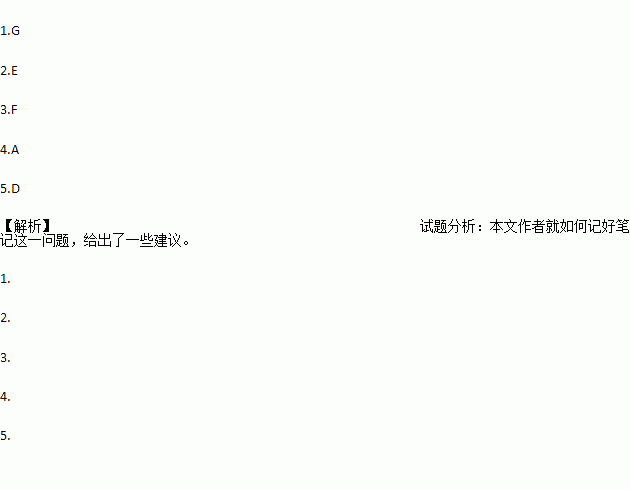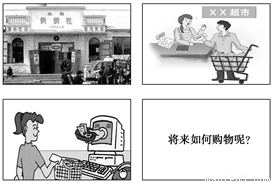题目内容
Taking good notes is a time-saving skill that will help you to become a batter student in several ways.1. Second, your notes are excellent materials to refer to when you are studying for a test. Third, note-taking offers variety to your study time and helps you to hold your interest.
You will want to take notes during classroom discussions and while reading a textbook or doing research for a report.2. Whenever or however you take notes, keep in mind that note-taking is a selective process.3.
The following methods may work best for you.
●Read the text quickly to find the main facts and ideas in it.
●Carefully read the text and watch for words that can show main points and supporting facts.
● Write your notes in your own words.
● 4.
● Note any questions or ideas you may have about what was said or written.
As you take notes, you may want to use your own shorthand(速记). When you do, be sure that you understand your symbols and that you use them all the time.5.
A. Use words, not complete sentences.
B. There are three practical note-taking methods.
C. You must write your notes on separate paper.
D. Otherwise, you may not be able to read your notes later.
AB. you will also want to develop your own method for taking notes.
AC. That means you must first decide what is important enough to include in your notes.
AD. First, the simple act of writing something down makes it easier for you to understand and remember it.
 开心蛙口算题卡系列答案
开心蛙口算题卡系列答案

